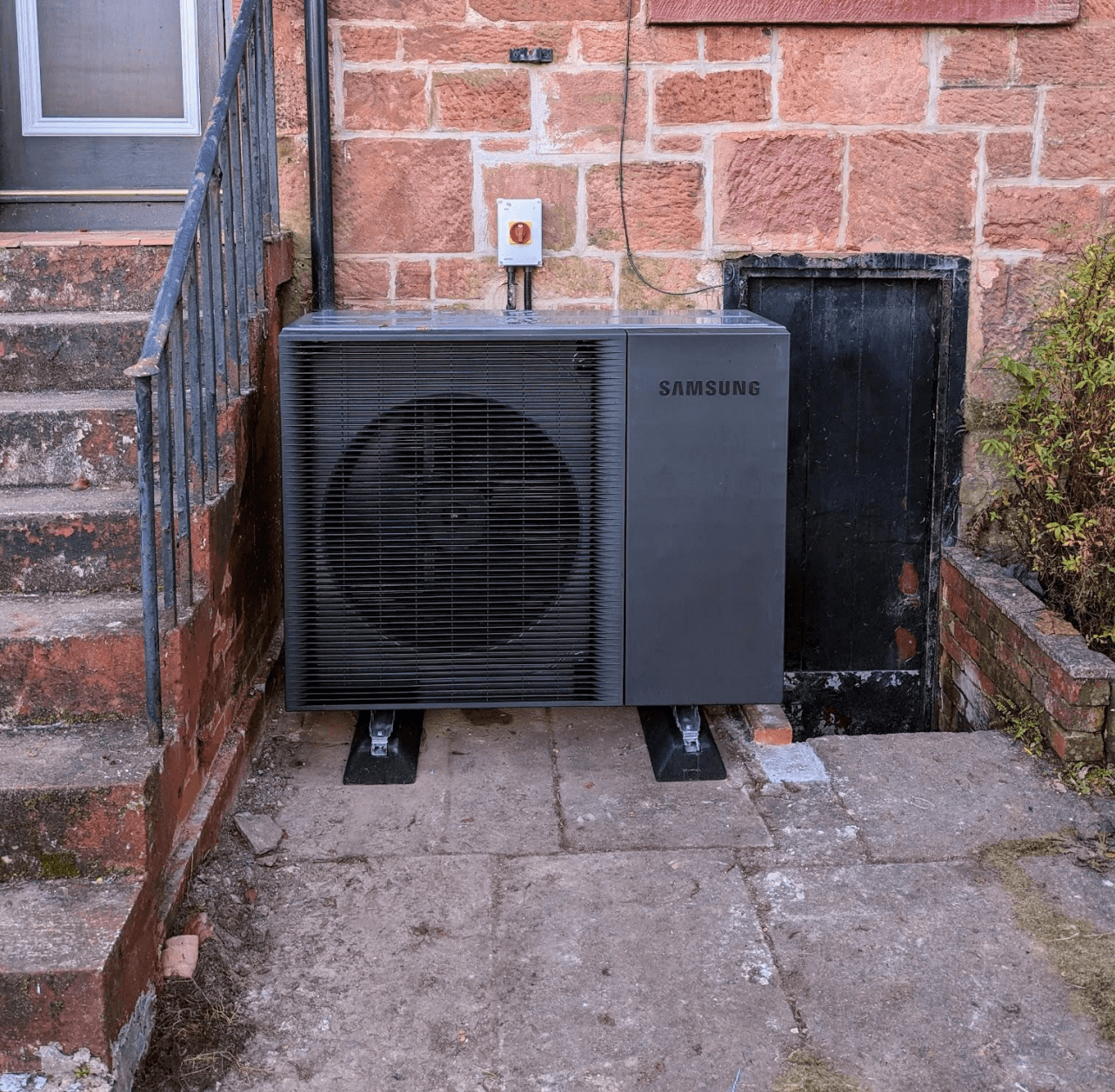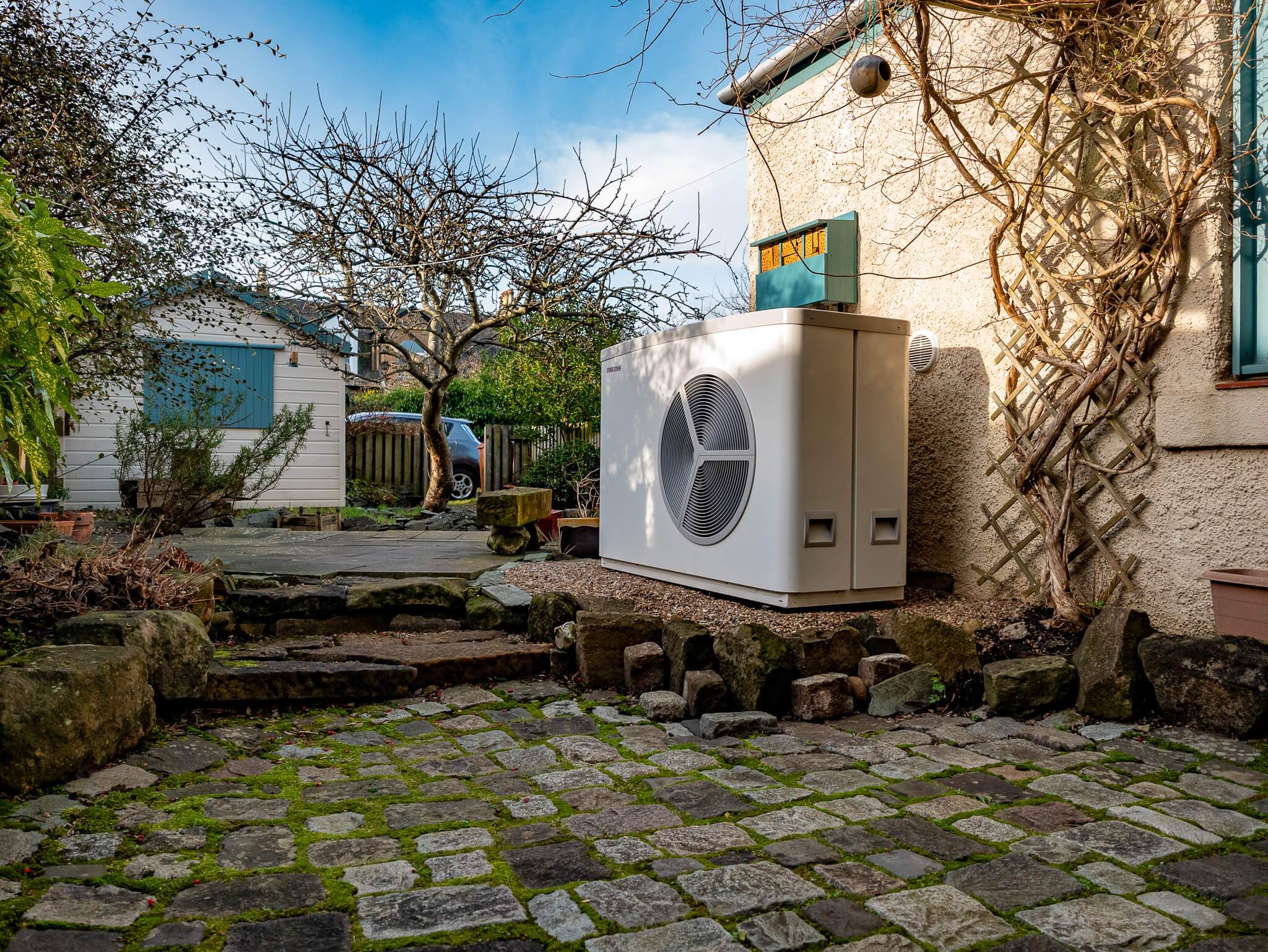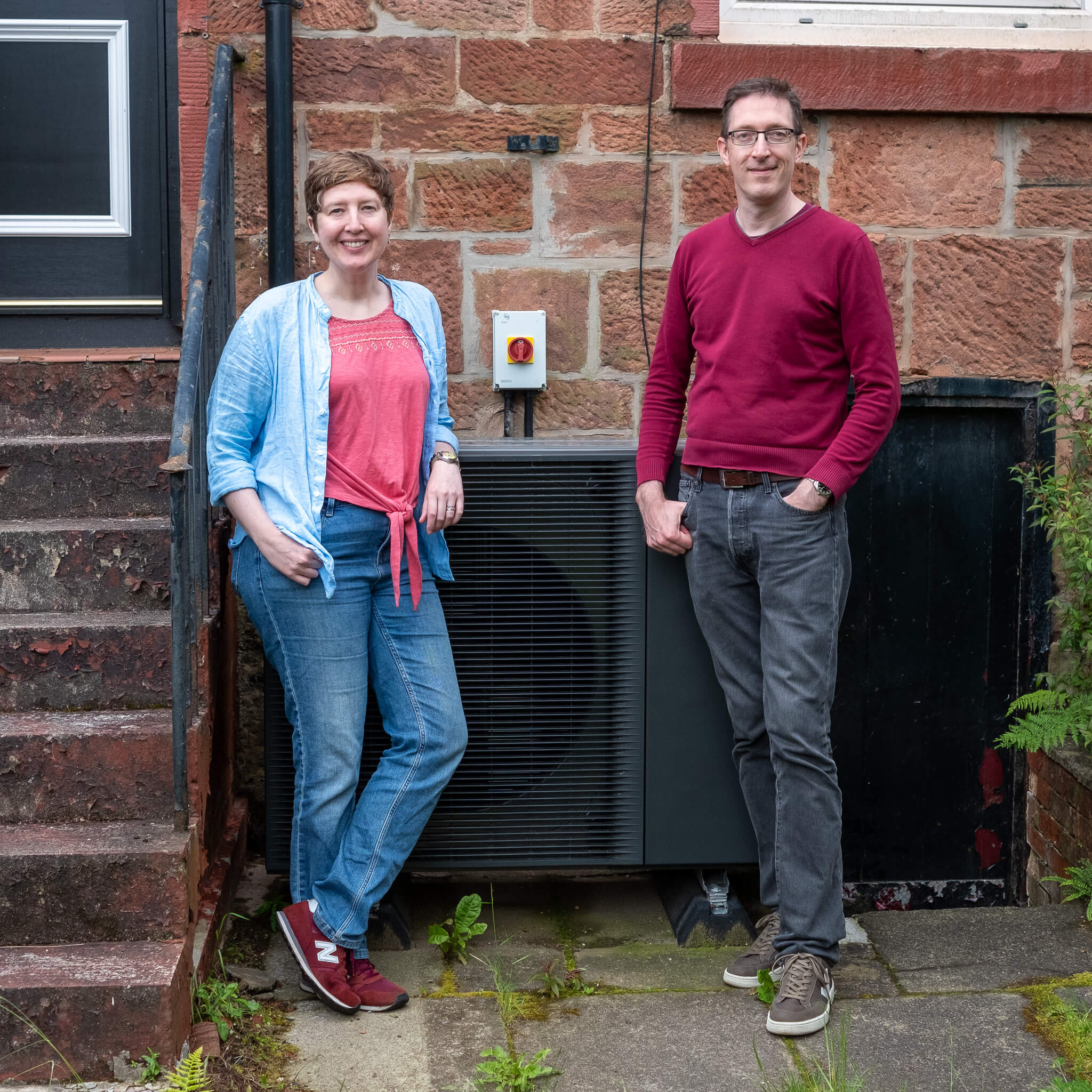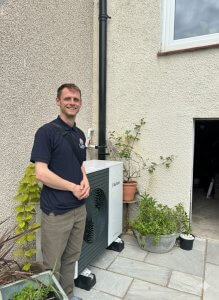Customers often tell us that they’d like to fit a heat pump, but they feel that it doesn’t make sense for them right now as they, or the previous owner, had to replace the gas boiler in the last few years. Loco Home’s Retrofit Consultant Angus weighs in on the topic.

There’s two main reasons why our customers are reluctant to part with their working boiler:
1. Isn’t scrapping it a bit of a waste?
The first reason (and probably the most common) is a concern that this would be wasting the energy used to produce the gas boiler, and so abiding by the mantra to “reduce, reuse and recycle” means the boiler should be allowed to live a long and happy life before retiring to the local scrap merchants.
2. I want to get my money’s worth from this boiler!
The second is about money. A new gas boiler runs into the thousands and they feel like not enough value has been extracted from that boiler to get rid of it.

Embodied vs operational emissions
Talking about “wasted energy”, “maintaining what we have”, and “not fixing what isn’t broken”, we’re essentially speaking about embodied emissions (or energy), whilst ignoring the operational emissions part.
- Embodied energy is all of the energy that goes into the production, transportation and installation of a given product, be that mineral wool to insulate the walls, or copper to lay the pipework for a heating system.
- Operational energy refers to the energy used (or saved) during the lifetime of the product.
Sometimes the amount of operational energy is directly influenced by the nature of the product (such as with how much insulation you install). It can certainly be said that this relationship exists with heating systems.
Heat Pumps: Efficiency in Action
Installing a heat pump is an excellent example of efficiency in action. As most of us now know, heat pumps are essentially tools to move heat energy from one place to another – from outside your home to inside your home. As they do not generate the energy directly, they can achieve far greater efficiencies than heating systems which operate as generators of heat such as boilers or electric panel heaters. These days, we expect to see efficiencies of between 300-400% from a heat pump. This means that under the same heating and insulation conditions, a heat pump at 320% efficiency will use roughly 75% less energy than a modern gas boiler uses for the same effect. Rather than using gas as the energy source, however, it uses electricity from the grid. Although some of this energy will have been generated by gas turbines, a growing proportion of it has been generated by renewable energy sources.
In 2024 (averaged across the UK) each kWh of grid electricity used accounted for 104g of CO2. So whilst heat pumps reduce energy use by 75%, they actually reduce carbon emissions by even more – roughly 84%!

But what about all the embodied emissions from that heat pump!?
Every home is different, however one review of studies found that the embodied carbon of a standard UK semi-detached house’s heat pump installation was 1.5tonnes of greenhouse gas (GHG) emissions. Energy Catapult analysis estimates that the average emissions from heating a UK home are around 2.7 tonnes of GHG emissions. With the efficiency gain of the heat pump, coupled with the lower carbon footprint per kWh of grid electricity, the installation would on average reduce this average household’s annual emissions to just 0.4 tonnes! This means that the simple payback on GHG emissions is less than a year. After that point, the cumulative emissions just get lower and lower as compared to keeping the gas boiler. For instance, after 10 years your gas boiler (which is now reaching the end of its usable life) has emitted a huge 27 tonnes of GHG emissions. Your heat pump will have only emitted 4.32 tonnes ofGHG emissions, even assuming that the grid doesn’t decarbonise further (which it will). These figures are just general, but I am yet to find a situation where the installation of a heat pump is not justified on the basis of emissions, irrespective of when the gas boiler was installed.
Long and the short of it
Keeping your old gas boiler is almost always going to cause more GHG emissions than replacing it with a well installed heat pump. Heat pump installation is a short term pain long term gain for the planet. We don’t think about the emissions from building oil rigs, but from burning the oil – it’s the same for boilers!
And how about the money?
Moving from a gas boiler to a well-installed heat pump will reduce bills for most households, provided that the design and install is good. But even with the £7500 grant and £7500 interest free loan it can often be some years until the once-off cost of radiator, pipework and cylinder upgrades are paid off by those savings.
But remember you’ll also achieve a superior level of comfort – and you can’t put a price on being cosy.
The biggest financial risk is that you select the wrong installer and end up with a poorly designed and installed system.
We can help you get it right in your home
If you’re considering upgrading to a heat pump, then the best way to avoid missteps and ensure good results for pocket and planet is to use Loco Home’s Heat Pump Plan.
- An independent view on heat pump suitability for your home
- An expert independent heat loss survey
- An assessment of the radiator changes required to optimise operating costs vs installation costs.
- At least two quotes from leading installers in the same format, making comparison easy.
- Save £100 in installer technical survey fees
- Receive invitations to our members’ open homes and see for yourself how heat pumps can save money and make your home cosier.
If you also want to integrate your heat pump with insulation upgrades or alterations such as an extension, then consider adding a Whole Home Plan.
Figures from https://www.carbonbrief.org/analysis-uks-electricity-was-cleanest-ever-in-2024/
https://energysavingtrust.org.uk/significant-changes-are-coming-uk-heating-market
Stephen Finnegan, Craig Jones, Steve Sharples,
The embodied CO2e of sustainable energy technologies used in buildings: A review article,
Energy and Buildings, Volume 181, (2018), available at
https://www.sciencedirect.com/science/article/pii/S0378778817323101
Meet the people in Glasgow who are happy with their heat pumps!

“Don’t just go straight to installers. Instead, go to an independent expert like Loco Home.”
Meet the Loco Home members who have transformed a cold, draughty house into a cosy home!


